
Dhamar: The Ancient Heart of Yemen
Welcome to Dhamar, an ancient city in Yemen with a history that dates back thousands of years. Nestled in a fertile valley and surrounded by mountains, Dhamar offers a unique blend of natural beauty and rich cultural heritage. The city's origins can be traced to the Himyarite Kingdom, making it a treasure trove for history enthusiasts and archaeology buffs. One of the most striking features of Dhamar is its traditional architecture, characterized by stone buildings and intricate geometric patterns. The cityscape is punctuated by minarets and the occasional modern building, creating a fascinating contrast between old and new. Strolling through the narrow streets, you'll encounter bustling markets where locals sell everything from spices to handicrafts, offering a sensory experience that is both vibrant and authentic. Dhamar is also home to several important archaeological sites, including the ruins of the ancient city of Himyar and the Dhamar Museum, which houses an impressive collection of artifacts. The surrounding countryside is equally captivating, with terraced fields, lush gardens, and scenic hiking trails. Whether you're an adventurer, a history lover, or simply looking to immerse yourself in Yemeni culture, Dhamar promises an unforgettable experience.
Local tips in Dhamar
- Visit the Dhamar Museum early in the day to avoid crowds and make the most of your visit.
- Wear comfortable walking shoes as the city's narrow streets and archaeological sites require a fair amount of walking.
- Try local dishes like salta and aseed in traditional restaurants for an authentic Yemeni culinary experience.
- Hire a local guide to explore the historical sites and understand the rich history of Dhamar better.
- Respect local customs and dress modestly, especially when visiting religious sites and rural areas.
Dhamar: The Ancient Heart of Yemen
Welcome to Dhamar, an ancient city in Yemen with a history that dates back thousands of years. Nestled in a fertile valley and surrounded by mountains, Dhamar offers a unique blend of natural beauty and rich cultural heritage. The city's origins can be traced to the Himyarite Kingdom, making it a treasure trove for history enthusiasts and archaeology buffs. One of the most striking features of Dhamar is its traditional architecture, characterized by stone buildings and intricate geometric patterns. The cityscape is punctuated by minarets and the occasional modern building, creating a fascinating contrast between old and new. Strolling through the narrow streets, you'll encounter bustling markets where locals sell everything from spices to handicrafts, offering a sensory experience that is both vibrant and authentic. Dhamar is also home to several important archaeological sites, including the ruins of the ancient city of Himyar and the Dhamar Museum, which houses an impressive collection of artifacts. The surrounding countryside is equally captivating, with terraced fields, lush gardens, and scenic hiking trails. Whether you're an adventurer, a history lover, or simply looking to immerse yourself in Yemeni culture, Dhamar promises an unforgettable experience.
When is the best time to go to Dhamar?
Iconic landmarks you can’t miss
Al-Saleh Mosque
Discover the beauty and tranquility of Al-Saleh Mosque, a stunning architectural gem in Sana'a, reflecting Yemen's rich cultural heritage.
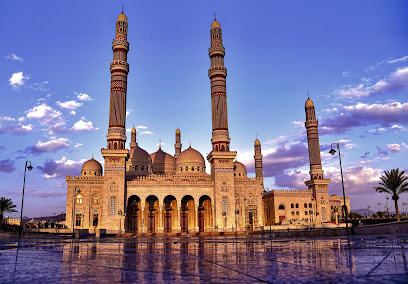
Dar AlHajar
Explore Dar AlHajar, an architectural marvel in Yemen showcasing rich history and breathtaking views, perfect for culture and nature enthusiasts.
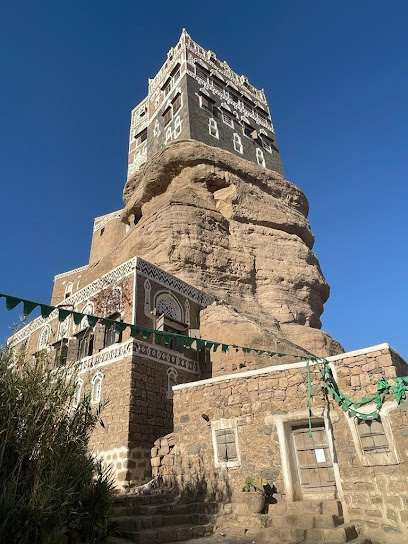
Seera Castle
Explore Seera Castle in Aden, Yemen, a historical fortress offering breathtaking views and rich cultural heritage.
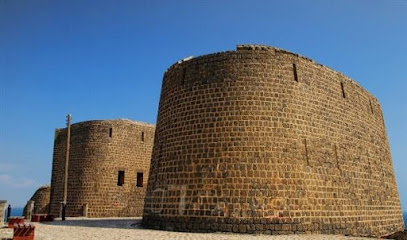
Alsahareej (Water Tanks)
Discover the historic Alsahareej Water Tanks in Aden, Yemen, a stunning architectural marvel showcasing ancient engineering and breathtaking views.
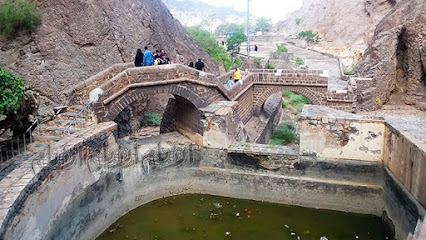
باب اليمن صنعاء القديمة
Discover the architectural beauty and vibrant culture of Bab al-Yemen, the historic gateway to Old Sana'a, a UNESCO World Heritage site.
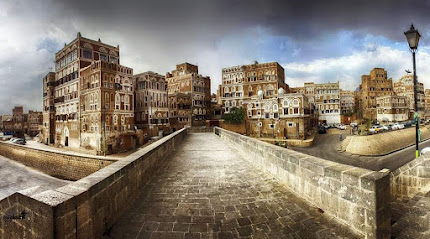
Sana'a Great Mosque
Discover the architectural beauty and rich history of Sana'a Great Mosque, an ancient symbol of Yemen's Islamic heritage and culture.
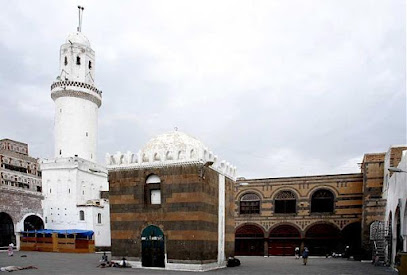
شبام حضرموت
Explore Shibam, Yemen's stunning UNESCO World Heritage Site, known for its ancient mudbrick skyscrapers and rich cultural heritage.
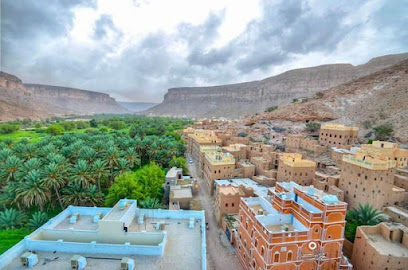
قصر الكثيري
Explore the majestic Al Kathiri Palace in Seiyun, a historical landmark that embodies Yemen's rich heritage and architectural beauty.
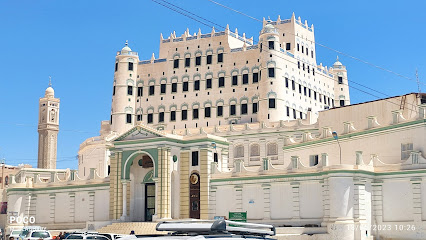
Harras of Dhamar
Explore the breathtaking Harras of Dhamar, a majestic mountain peak in Yemen offering stunning views, rich culture, and unforgettable adventures.
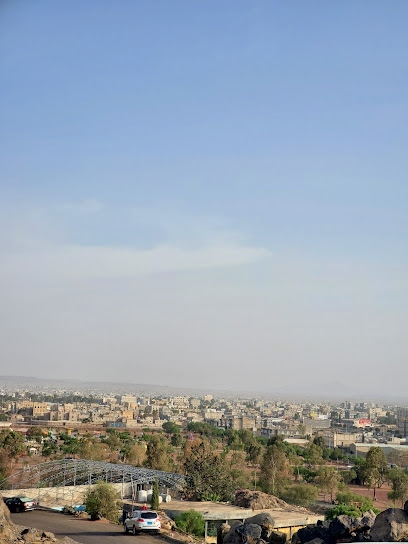
متحف بينون
Discover the rich history of Yemen at the Archaeological Museum in Al Hudaydah, where ancient artifacts reveal the stories of a vibrant past.
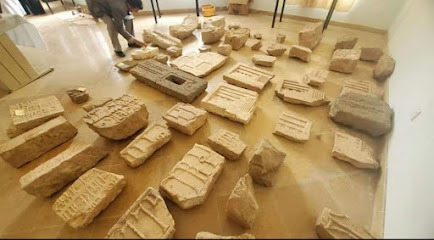
محمية عتمة، ذمار، اليمن
Explore the captivating Mahramat Atma in Yemen, a stunning tourist attraction blending rich history and breathtaking landscapes for an unforgettable adventure.
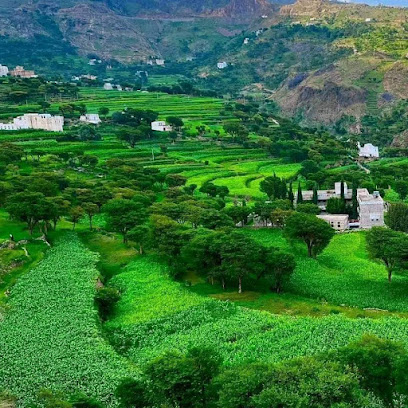
نافورة الميدان Dhamar Time Square
Discover the charm of Dhamar Time Square, an open-air museum and cultural hub that showcases the beauty of Yemen's heritage and local life.
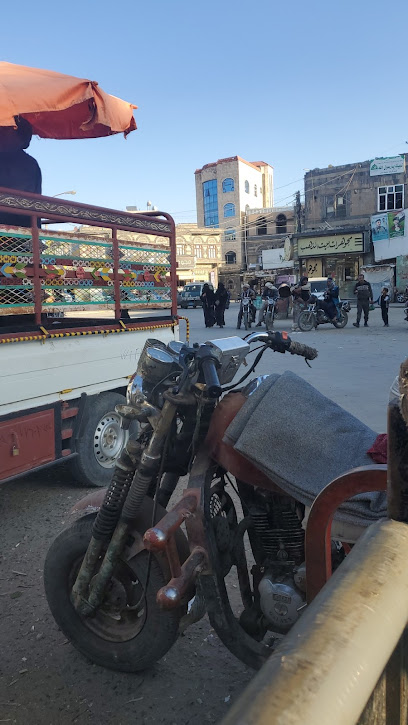
Sana'a, Yemen
Explore the enchanting streets of Sana'a, Yemen, where ancient history meets vibrant culture in a breathtaking architectural landscape.
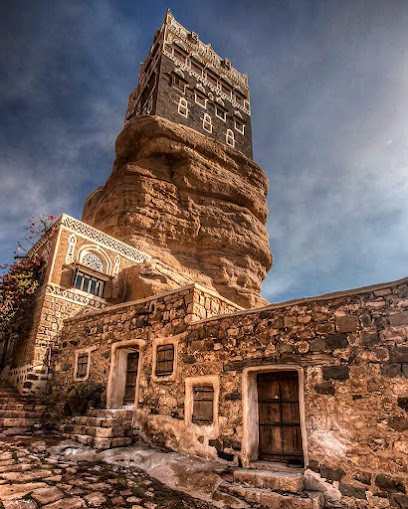
دوئر حجرية
Discover the enchanting history of Yemen at Dhuhr Harjiya, a treasure trove of artifacts and ancient stories waiting to be explored.
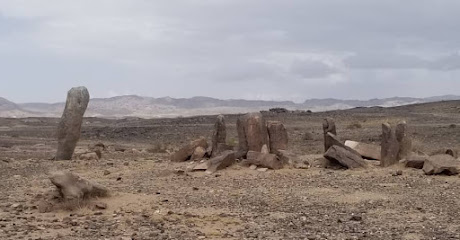
الموضع
Discover the rich history and stunning architecture of Al-Mawz, a captivating historical landmark in Yemen offering breathtaking mountain views.

Unmissable attractions to see
Al Sabeen Square
Explore the vibrant Al Sabeen Square in Sana'a, a perfect blend of nature and culture, ideal for relaxation and local experiences.
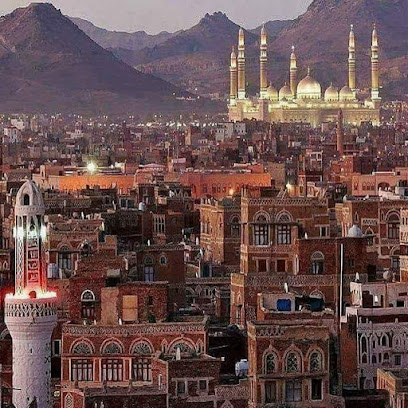
Fun City
Experience the magic of Fun City in Sana'a - a perfect blend of amusement park excitement and serene park landscapes for all ages.
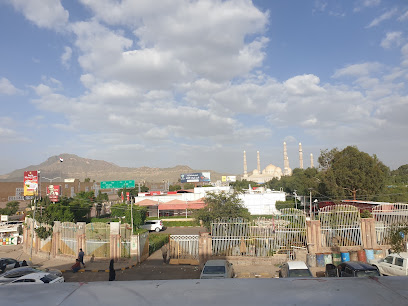
National Museum
Explore Yemen's rich history at the National Museum, a cultural gem in Sana'a showcasing ancient artifacts and heritage.
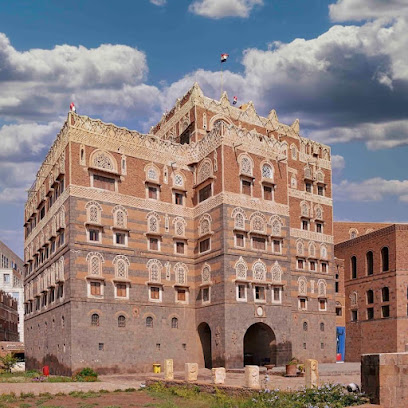
Old Sana'a City's Wall
Discover the historical significance and breathtaking architecture of Old Sana'a City's Wall, a UNESCO World Heritage site in Yemen.
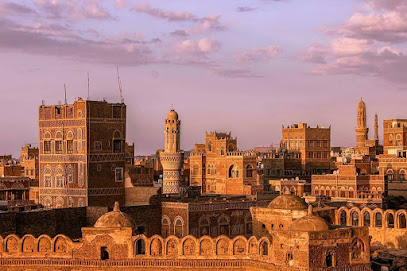
Fort love
Explore the majestic Fort Love in Ibb, Yemen - a historic fortress that offers breathtaking views and a glimpse into the rich cultural heritage of the region.
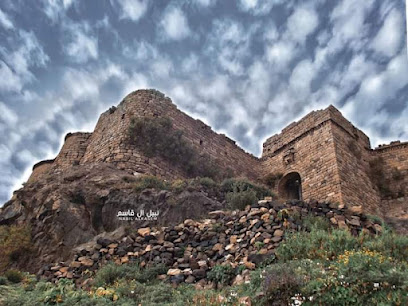
شلال النافش ميتم
Discover the breathtaking Al-Nafash Waterfall in Yemen, a natural haven for adventurers and nature lovers alike, offering stunning views and peaceful surroundings.
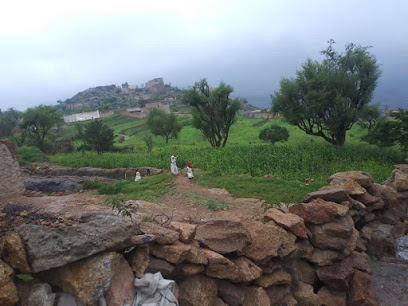
مارد الثورة
Discover the enchanting heritage of Mard Al-Thawra in Sana'a, Yemen, where history and culture come alive in a vibrant atmosphere.
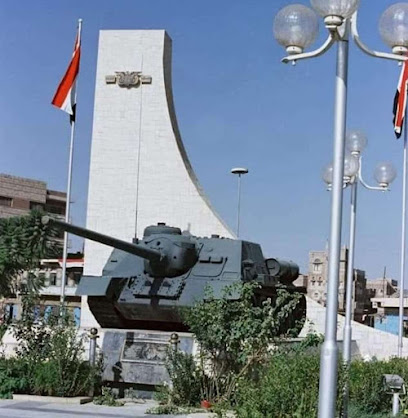
نافورة الميدان Dhamar Time Square
Discover the rich cultural heritage of Yemen at Dhamar Time Square, an enchanting open-air museum filled with history, art, and lively local culture.
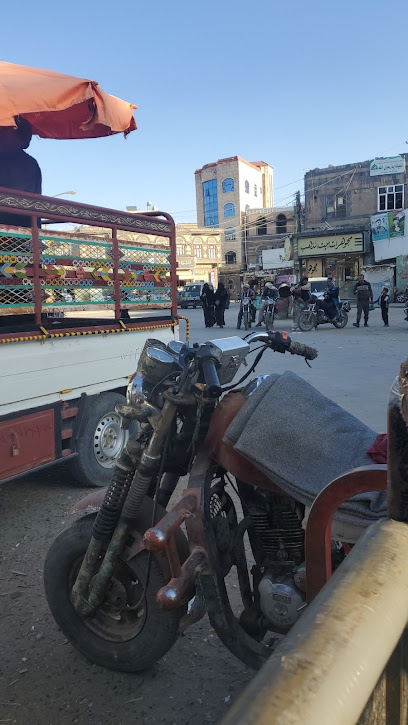
جبل الشماحي
Explore the breathtaking beauty of Mount Shamahi, a stunning natural attraction in Yemen, perfect for hiking, photography, and cultural experiences.
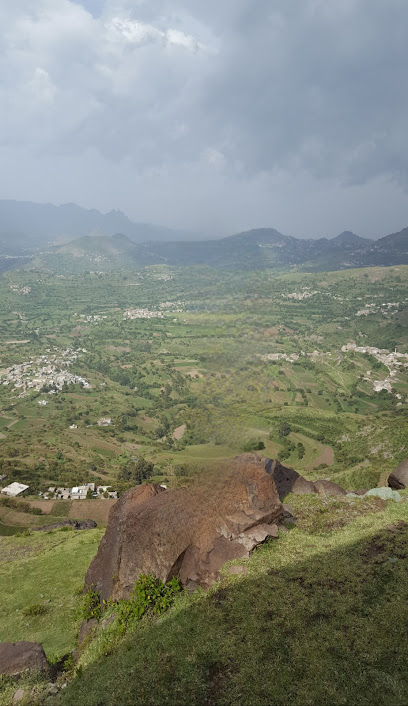
Nehar
Explore the tranquil charm of Nehar, a beautiful garden in Dhamar, Haryana, perfect for relaxation, family gatherings, and enjoying nature's beauty.

Essential places to dine
مطعم عالم البحار للأسماك
Experience the rich flavors of Yemeni seafood at مطعم عالم البحار للأسماك in Dhamar - where every bite tells a story.

Hadhramot Restaurant
Experience authentic Yemeni cuisine at Hadhramot Restaurant in Dhamar – a culinary gem offering rich flavors and welcoming hospitality.
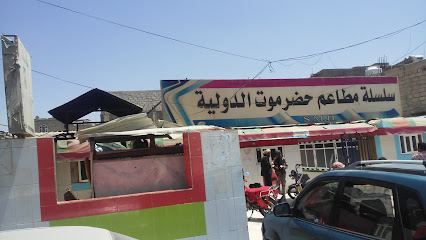
Deluxe
Experience authentic Yemeni flavors at Deluxe Restaurant in Dhamar - where tradition meets modern dining.
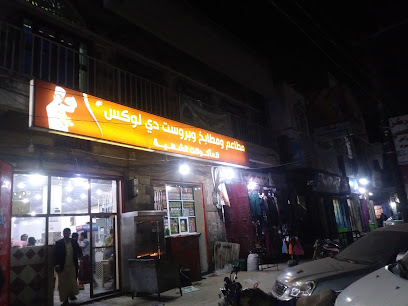
مجموعه مطاعم ومطابخ نجوم حضرموت باحااااااج
Discover authentic Yemeni flavors at مطاعم ومطابخ نجوم حضرموت باحااااااج in ذمار – a delightful dining destination for every food lover.
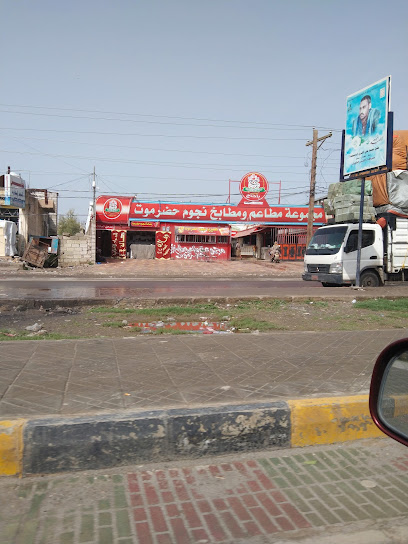
مطعم الجزيرة السياحي
Experience authentic Yemeni cuisine at مطعم الجزيرة السياحي—where tradition meets flavor in every dish.
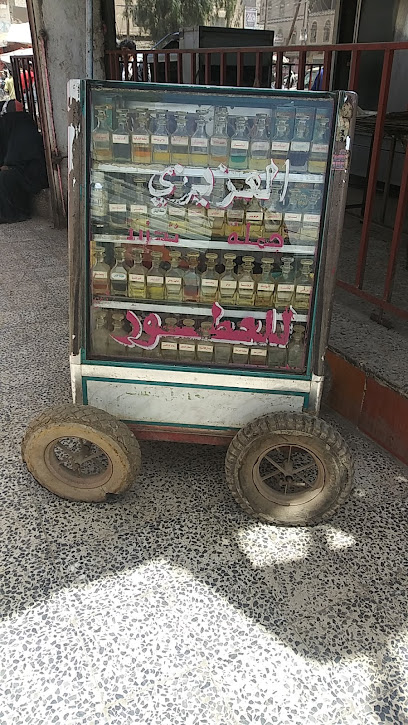
Alyamamh Restaurant
Experience authentic Yemeni cuisine at Alyamamh Restaurant in Dhamar - where flavor meets tradition in a cozy setting.
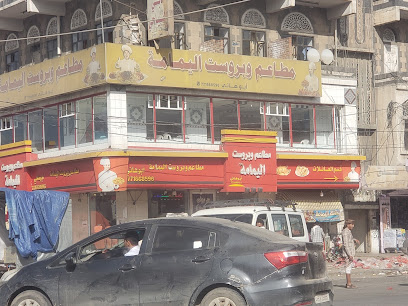
مطعم دشيله
Experience authentic Yemeni cuisine at مطعم دشيله in Dhamar – a delightful culinary journey filled with rich flavors and warm hospitality.
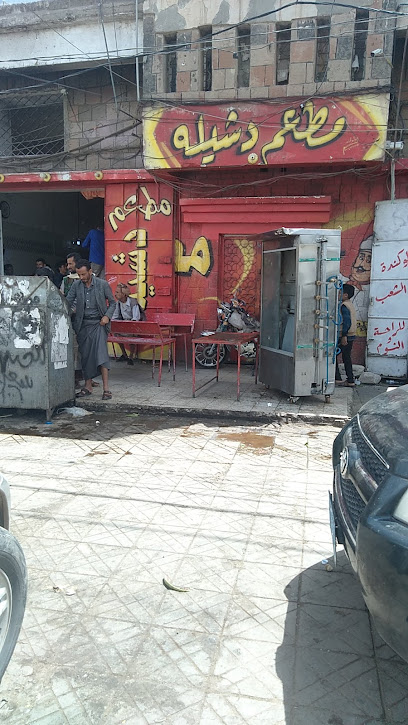
Al-Ahram Restaurant
Discover authentic Yemeni cuisine at Al-Ahram Restaurant in Dhamar – where every dish tells a story.
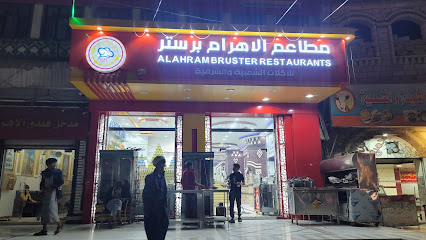
مطعم القلعة السياحي
Discover authentic Yemeni flavors at مطعم القلعة السياحي in Dhamar - where every dish tells a story.

مطعم الحرمين السياحي
Discover the rich culinary heritage of Yemen at مطعم الحرمين السياحي in Dhamar – a haven for authentic Yemeni flavors.
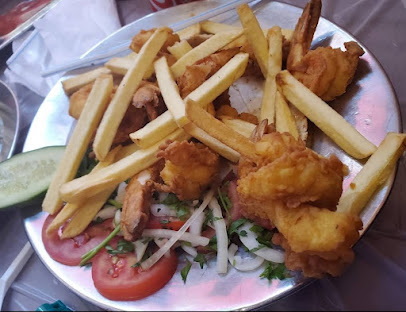
مطعم حكاية مذاق
Experience authentic Yemeni flavors at مطعم حكاية مذاق, located near Hiran Park in Dhamar - a true culinary gem for every traveler.
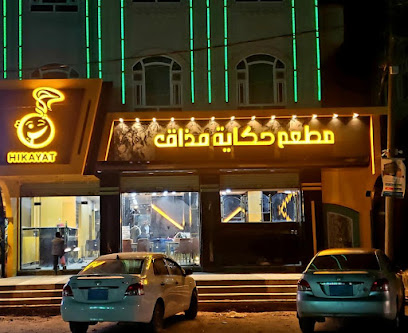
مطعم شبام سام حضرموت
Experience authentic Yemeni cuisine at مطعم شبام سام حضرموت in Dhamar – where every dish tells a story.
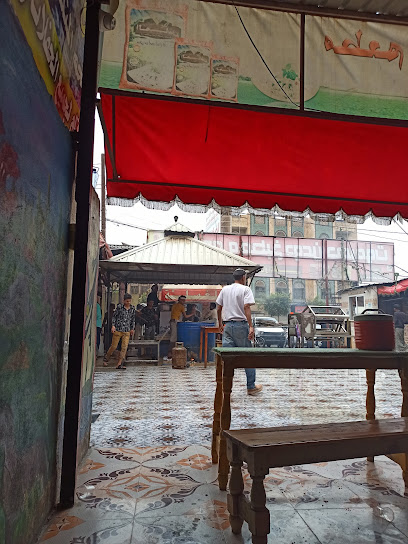
مطعم التوفيق والنجاح
Experience authentic Yemeni cuisine at مطعم التوفيق والنجاح in Dhamar – where tradition meets taste in every dish.

مطاعم حضرموت
Experience authentic Yemeni flavors at Hadhramaut Restaurant in Dhamar—perfect for families seeking delicious meals in a welcoming atmosphere.
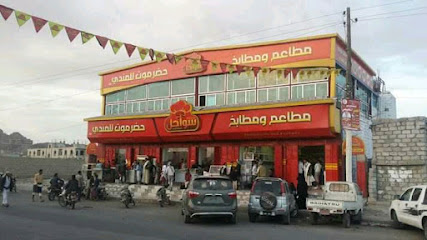
مطاعم عصبة
Experience authentic Yemeni flavors at مطاعم عصبة in ذمار - where every meal is a celebration of local culinary traditions.
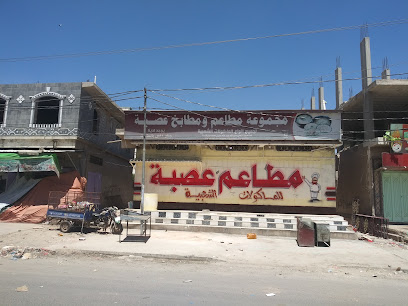
Markets, malls and hidden boutiques
حراج الطايف
Discover unique furniture and local craftsmanship at حراج الطايف, a vibrant marketplace in Dhamar, Yemen, perfect for design enthusiasts.
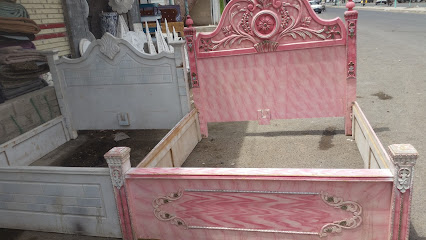
City Corner electronics and renewable energy
Explore modern technology and renewable energy solutions at City Corner Electronics in Dhamar, Yemen, blending innovation with sustainability.
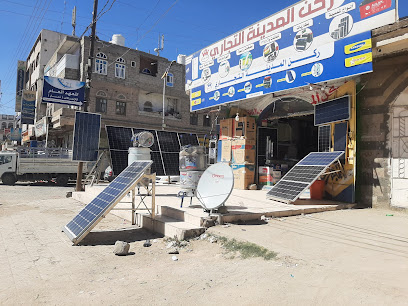
اليمن.ذمار
Explore Dhamar's cultural tapestry through its exquisite confectionery, where every sweet treat narrates a story of Yemeni tradition and flavor.
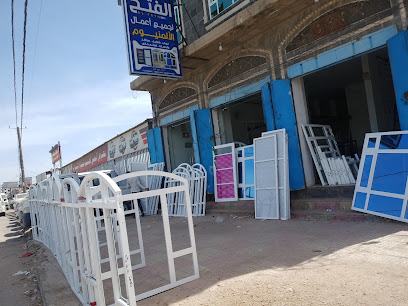
محلات علي احمد الوهيبي للتجارة العامة
Explore Ali Ahmed Al-Wuhibi General Trading in Dhamar, Yemen, for a unique shopping experience filled with local culture and vibrant products.

Yemen Gift Cards
Explore Yemen Gift Cards in Sana'a for unique handcrafted gifts that showcase the rich cultural heritage of Yemen.

سوبر ماركت الثمار الطيبة
Discover authentic Yemeni flavors and local culture at Supermarket Al-Thimar Al-Tayyibah, your culinary hub in Dhamar.

اليمن
Discover Yemen's rich culture through its vibrant shopping malls and traditional markets, offering a blend of modern and authentic experiences.

نبض الرعاية للمستلزمات الطبية
نبض الرعاية للمستلزمات الطبية: Your trusted medical supply destination in Dhamar, Yemen, offering quality healthcare products for every need.

تموينات المحافظة للمواد الغذائية
Explore local cuisine and unique food products at تموينات المحافظة للمواد الغذائية in Dhamar, Yemen, a must-visit for every traveler.
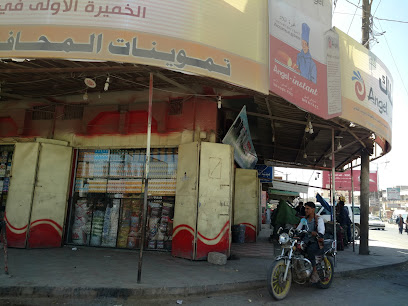
عالم التجميل والهدايا. . مروان الصباري للاكسسوارات
Explore a treasure trove of beauty products at عالم التجميل والهدايا in Dhamar, where local charm meets quality in beauty supplies.
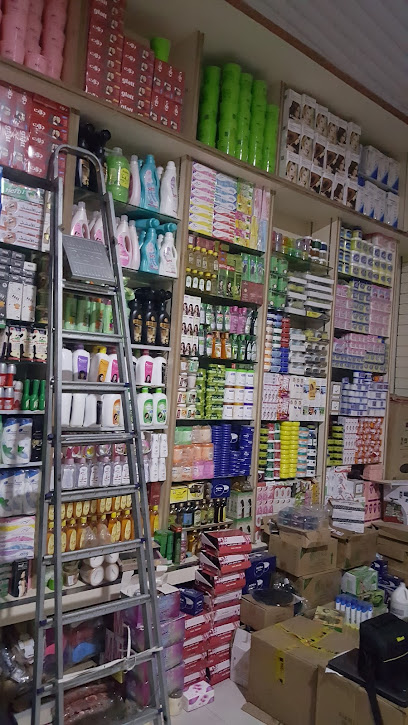
بقاله قنام
Explore local flavors at بقاله قنام, a charming grocery store in Dhamar, Yemen, offering fresh produce and unique local products.
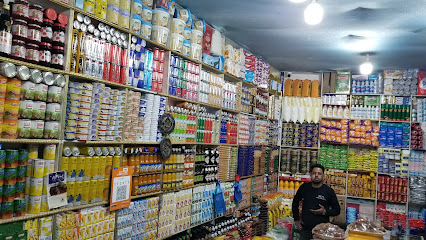
ذمارسوبر ماركت العائله
Explore the vibrant Dhmar Family Supermarket in Dhamar, Yemen, where local culture and unique shopping blend seamlessly.

محلات احمد الصيفاني واولاده للتجاره العامه
Discover the lively Ahmed Al-Saifani Stores in Dhamar for an authentic local shopping experience filled with unique Yemeni goods.
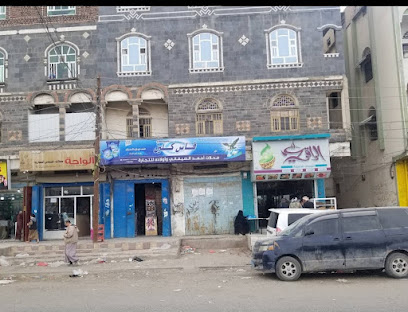
تموينات العمودي
Explore authentic Yemeni flavors at تموينات العمودي, a charming grocery store in Dhamar offering local products and a taste of everyday life.
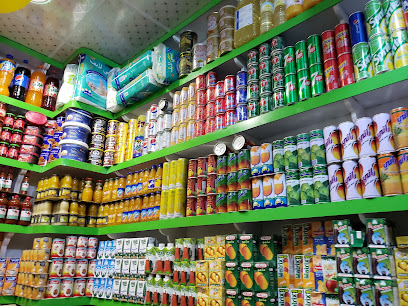
سهل لتجارة الهواتف الذكية
Explore the latest smartphones and accessories at سهل لتجارة الهواتف الذكية in Dhamar, Yemen - your hub for mobile technology.
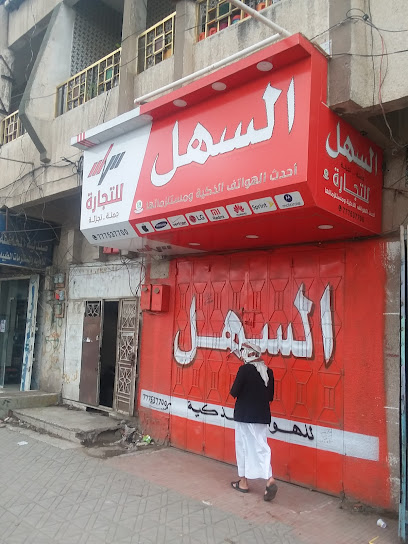
Essential bars & hidden hideouts
Chandler Muriel Bing
Experience the cozy charm of Chandler Muriel Bing, a cafe in Yemen City serving delightful teas and exquisite unagi dishes.

قاعة المراني للافراح والمؤتمرات والمناسبات
Experience elegance and sophistication at Al-Marani Hall, Dhamar's premier venue for weddings and special occasions.
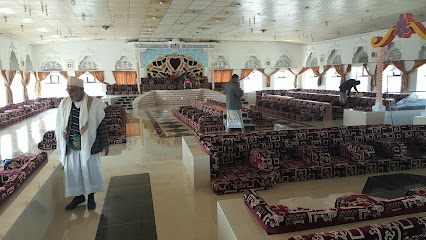
مركز ارقيله للشيش والمعسل والتحف والهدايا
Discover Dhamar's vibrant culture at مركز ارقيله, the ultimate hookah bar for relaxing and enjoying local flavors in a warm atmosphere.

سوق عنس امام عالم البحار
Experience the essence of Yemeni culture at سوق عنس امام عالم البحار, a vibrant lounge in Dhamar, where delicious cuisine meets warm hospitality.

الحمرة
Discover the vibrant atmosphere of Al-Hamra, a lively bar in Dhammar, Yemen, perfect for enjoying local drinks and mingling with friendly locals.

سليم الحميقاني
Discover the vibrant atmosphere of Sleem Al-Hameeqani, a unique bar experience in Dhamar, Yemen, where traditional hospitality meets modern relaxation.

الحده
Discover the vibrant culture and refreshing drinks at Al-Hudda, a lively bar in Dhamar, Yemen, perfect for tourists seeking local experiences.

مظعم تهامة
Experience the rich flavors and warm hospitality of Yemen at مظعم تهامة, a charming bar in the heart of Dhamar.

قايد محمد لبيع السكريم
Experience the delightful flavors of قايد محمد لبيع السكريم in Dhamar, Yemen - the perfect stop for a refreshing treat.

ذي اسود
Discover the vibrant atmosphere of ذي اسود, Yemen's social hub for drinks, culture, and unforgettable memories.

جربه رياض الدربي
Discover the vibrant charm of جربه رياض الدربي, a lively bar in Yafa', Yemen, where local culture meets refreshing beverages.

قايد محمد
Experience the vibrant culture and lively atmosphere at Qa'id Muhammad, Dhamar's premier bar for travelers seeking local flavors and entertainment.

Local Phrases
-
- Helloمرحبا
[marhaban] - Goodbyeوداعا
[wadaeana] - Yesنعم
[naam] - Noلا
[laa] - Please/You're welcomeرجاء
[rujaa] - Thank youشكرا
[shukran] - Excuse me/Sorryعذرا
[aadhara] - How are you?كيف حالك؟
[kayfa haluk?] - Fine. And you?بخير. وأنت؟
[bikhayr. wa'ant?] - Do you speak English?هل تتحدث الإنجليزية؟
[hal tatahadath al'injlizia?] - I don't understandأنا لا أفهم
[ana la afham]
- Helloمرحبا
-
- I'd like to see the menu, pleaseأود أن أرى القائمة، من فضلك
[awad 'an 'ara alqaima, min fadlik] - I don't eat meatأنا لا آكل اللحم
[ana la aakul allahm] - Cheers!في صحتك!
[fi sahtik!] - I would like to pay, pleaseأود أن أدفع، من فضلك
[awad 'an 'adfae, min fadlik]
- I'd like to see the menu, pleaseأود أن أرى القائمة، من فضلك
-
- Help!النجدة!
[alnajdah!] - Go away!انصرف!
[inasraf!] - Call the Police!اتصل بالشرطة!
[atassal bilshurta!] - Call a doctor!اتصل بطبيب!
[atassal batabib!] - I'm lostلقد ضللت الطريق
[laqad dalalt altariq] - I'm illأنا مريض
[ana mareed]
- Help!النجدة!
-
- I'd like to buy...أريد أن أشتري...
[uriid 'an 'ashtari...] - I'm just lookingأنا فقط أتطلع
[ana faqat 'ataatala] - How much is it?كم سعرها؟
[kam si'raha?] - That's too expensiveهذا غالي جدا
[hatha ghali jiddan] - Can you lower the price?هل يمكنك خفض السعر؟
[hal yumkinuk khafd alsi'ra?]
- I'd like to buy...أريد أن أشتري...
-
- What time is it?كم الساعة؟
[kam alsaa'ah?] - It's one o'clockالساعة الواحدة
[alsaa'ah alwahida] - Half past (10)نصف العاشرة
[nisf alaashirah] - Morningالصباح
[alsabah] - Afternoonالظهر
[aldhuhur] - Eveningالمساء
[almasa'] - Yesterdayأمس
[ams] - Todayاليوم
[alyawm] - Tomorrowغدا
[ghadan] - 1واحد
[wahid] - 2اثنان
[ithnaan] - 3ثلاثة
[thalatha] - 4أربعة
[arba'ah] - 5خمسة
[khamsah] - 6ستة
[sittah] - 7سبعة
[sab'ah] - 8ثمانية
[thamania] - 9تسعة
[tisa'ah] - 10عشرة
[asharah]
- What time is it?كم الساعة؟
-
- Where's a/the...?أين هو/هي...؟
[ayn huwa/hiya...?] - What's the address?ما هو العنوان؟
[ma huwa al'unaan?] - Can you show me (on the map)?هل يمكنك أن تريني (على الخريطة)؟
[hal yumkinuk 'an tarini (ala alkhareeta)?] - When's the next (bus)?متى الحافلة التالية؟
[mata alhafilat altaliat?] - A ticket (to ....)تذكرة (إلى ....)
[tadhkirah (ila ....)]
- Where's a/the...?أين هو/هي...؟
History of Dhamar
-
Dhamar's history stretches back to antiquity, where it was a significant center during the Himyarite Kingdom, which thrived from approximately 110 BCE to 525 CE. The region was known for its advanced agricultural techniques and impressive irrigation systems. Archaeological findings suggest that Dhamar played a crucial role in the trade routes linking South Arabia with the Mediterranean world.
-
With the advent of Islam in the 7th century, Dhamar, like much of Yemen, saw significant changes. The city became an important hub for Islamic scholarship and culture. The spread of Islam brought new architectural styles, with mosques and madrasas (Islamic schools) springing up, many of which still stand as testaments to this period.
-
During the 16th century, the Ottoman Empire extended its reach into Yemen, including Dhamar. This period was marked by a blend of local traditions with Ottoman influences, evident in the architecture and urban planning of the city. The Ottomans built fortifications and administrative buildings, many of which have become historical landmarks.
-
From the 17th century until the early 20th century, Dhamar was part of the Zaydi Imamate, a theocratic state ruled by Imams of the Zaydi sect of Shia Islam. This era saw the flourishing of religious and educational institutions, cementing Dhamar's reputation as a center for Islamic learning. The region also witnessed significant agricultural development and trade.
-
The 20th century brought profound changes to Dhamar as Yemen transitioned from the Imamate to a republic in 1962. Dhamar played a notable role in the Yemeni revolution and subsequent civil wars. In recent decades, the city has faced challenges including political instability and natural disasters, but it remains a vibrant center of Yemeni culture and history.
-
Dhamar is renowned for its rich cultural heritage, including traditional Yemeni architecture, vibrant markets, and handicrafts. The city is also famous for its unique customs, traditional dances like the Bara'a, and its contributions to Yemeni music. Festivals and religious celebrations continue to play a significant role in the life of Dhamar's inhabitants.
Dhamar Essentials
-
Dhamar is located about 100 kilometers south of Yemen's capital, Sana'a. The nearest international airport is Sana'a International Airport. From the airport, you can hire a taxi or use private car services to reach Dhamar. The journey typically takes around 2 to 3 hours by road, depending on traffic and road conditions. It is advisable to arrange transportation in advance through your hotel or a trusted travel agency.
-
Once in Dhamar, local transportation options include taxis and minibuses. Taxis are the most convenient mode of transport and can be hired for short trips within the city or for day trips to nearby attractions. Minibuses (known locally as 'saraweh') are a more economical option and operate on fixed routes. Renting a car is also an option, though driving in Yemen can be challenging due to road conditions and traffic laws.
-
The official currency in Yemen is the Yemeni Rial (YER). Cash is the primary mode of payment, and it is advisable to carry sufficient cash as credit cards are seldom accepted outside major hotels and some upscale restaurants. ATMs are available in Dhamar, but it is wise to withdraw enough cash in Sana'a before traveling to Dhamar. Ensure you have small denominations for easier transactions.
-
Dhamar is generally safe for tourists, but it is important to stay vigilant and take standard safety precautions. Avoid walking alone at night and stay away from poorly lit areas. Be cautious of pickpockets in crowded places. Certain areas in Yemen are known for higher crime rates and political instability, so it is advisable to stay updated on travel advisories and avoid travel to these regions. Always travel with a local guide or in a group.
-
In case of an emergency, dial 199 for police assistance and 191 for medical emergencies. Dhamar has local police stations and medical facilities available. It is highly recommended to have comprehensive travel insurance that covers medical emergencies and evacuation. For minor health issues, there are pharmacies where you can purchase over-the-counter medications.
-
Fashion: Do dress modestly, covering shoulders and knees. Avoid wearing revealing clothing. Religion: Do respect local customs and traditions. Always remove your shoes before entering mosques. Public Transport: Do be respectful and considerate of other passengers. Don't eat or drink on public transport. Greetings: Do greet people with a hand over your heart or a slight bow. Handshakes are common but avoid physical contact with the opposite gender. Eating & Drinking: Do try local dishes and accept food offerings graciously. Don't refuse hospitality, as it is considered impolite.
-
To experience Dhamar like a local, visit the traditional markets (souks) where you can buy fresh produce and local handicrafts. Engage with locals, who are often friendly and eager to share stories about the city's history and culture. Don't miss visiting the ancient ruins and historical sites, such as the Himyarite Kingdom remains. For a unique experience, attend local festivals and events to immerse yourself in Yemeni culture.
Nearby Cities to Dhamar
-
Things To Do in Ibb
-
Things To Do in Sana'a
-
Things To Do in Aden
-
Things To Do in Obock
-
Things To Do in Jizan
-
Things To Do in Najran
-
Things To Do in Tadjoura
-
Things To Do in Djibouti City
-
Things To Do in Loyada
-
Things To Do in Arta
-
Things To Do in Ali Sabieh
-
Things To Do in Dikhil
-
Things To Do in Khamis Mushait
-
Things To Do in Abha
-
Things To Do in Adi Keyh





